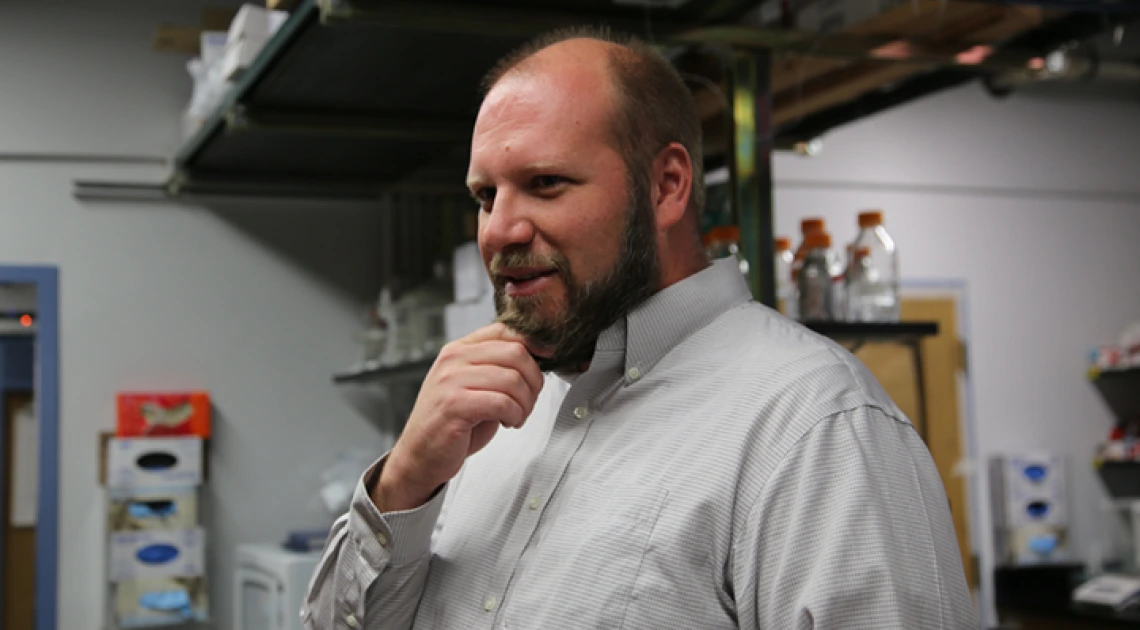UA Startup Delivers Real-Time Brain Chemistry Measurement Tools

TUCSON, Ariz. – The University of Arizona has licensed a new technology for measuring brain chemistry in real-time to startup Knowmad Technologies. Michael Heien, Ph.D., assistant professor in the Department of Chemistry and Biochemistry in the UA College of Science and the UA College of Medicine-Tucson, invented the system and is commercializing the technology with his former postdoc and Knowmad co-founder, Chris Atcherley(link is external), Ph.D.
The invention enables researchers in academia and the pharmaceutical industry to monitor neurotransmitters (chemical messengers which allow the transmission of signals from one neuron to the next) in real-time in targeted regions of the brain simultaneously.
”The software and methods that we have developed are used by many labs to measure neurotransmitters during behavior and drug challenges," says Heien. "It will enable us to understand how brain chemistry changes during learning, chronic pain, and other neurological disorders. In the future, we will be able to map the neurochemistry across different brain structures, allowing us to understand how the entire system is changing.”
Tech Launch Arizona (TLA), the office of the UA that commercializes inventions stemming from UA research, facilitated the process of defining the intellectual property, patenting the invention and licensing it to Knowmad.
To date, researchers have been dependent upon measuring behavior in animal models to make research observations.
“This technology is going to give us great new insights,” says TLA Licensing Manager for the College of Science Paul Eynott, Ph.D., M.B.A. “It allows researchers to get a better handle on what’s happening to the neurotransmitters in the brain which can no doubt lead to new insights into the pathophysiology of neurological diseases and therefore new treatments.”
For example, even though we know that therapies such as antidepressants bind to the appropriate receptors in the brain within minutes after dosing, these therapies take up to six weeks before any clinical benefit can be observed and research has yet to explain why.
“With the tools that Knowmad is bringing to market,” says Eynott, “researchers will be able to begin to address these questions and many others.”
Ultimately, the goal is to develop a better understanding of how current therapies work and formulate better ones based on a clearer understanding of the chemical mechanisms underlying neurological disorders like depression.

